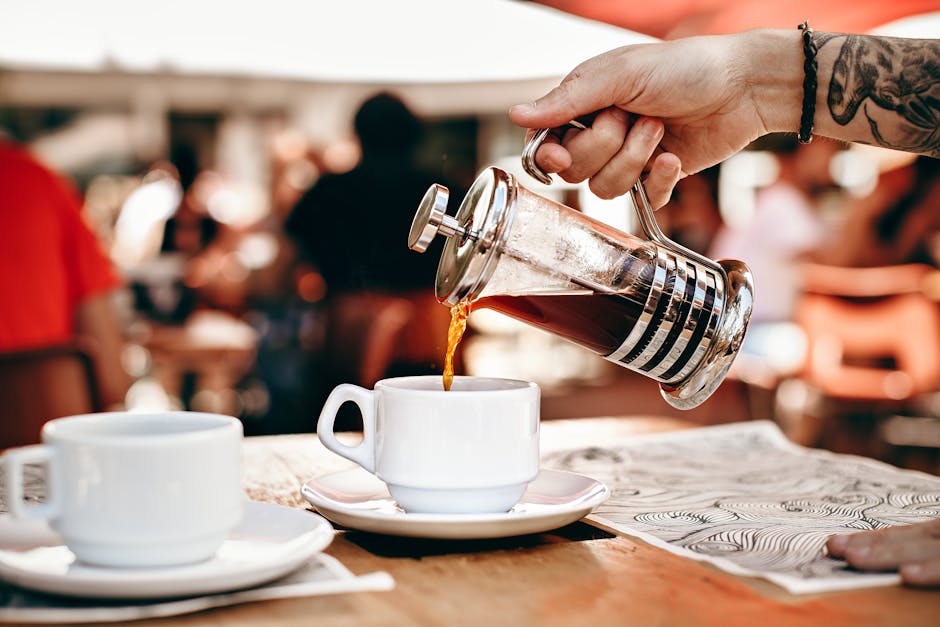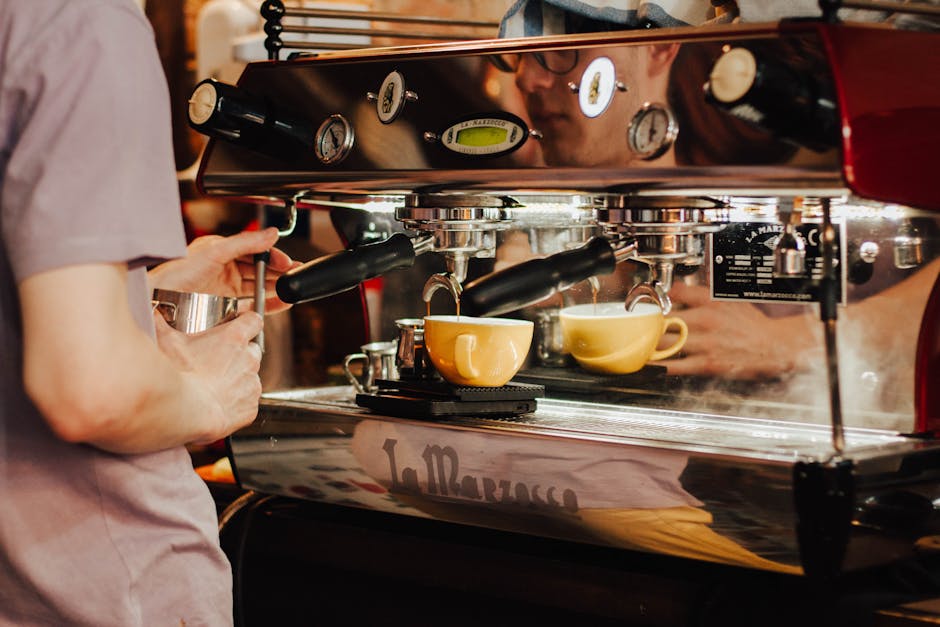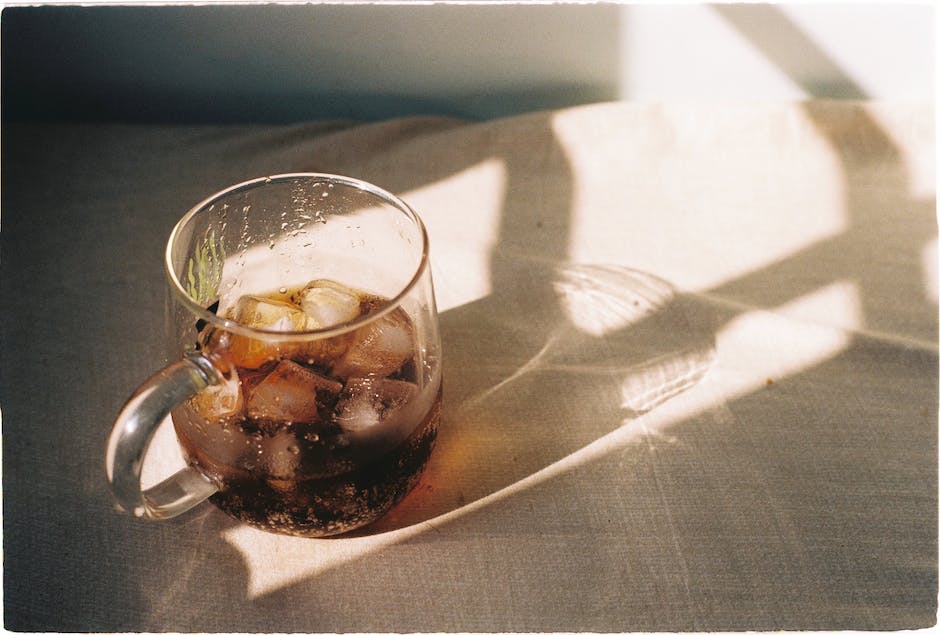Where is filter coffee the most loved brewing method?


“Filter coffee is not just a brewing method, it is a declaration of love for the original taste of coffee, where every drop is a tribute to tradition and craftsmanship.”
Filter coffee – a worldwide favorite
From the barren landscapes of Scandinavia to the vibrant cities of the United States and the artistic coffeehouses of Japan, filter coffee is a method loved across much of the world. It is particularly widespread in Scandinavia, where it is part of the daily ritual, and in the United States, where it is enjoyed in homes and offices alike. In Japan, filter coffee is prepared with a ceremonial precision that reflects a deep respect for the craft.
Here in Scandinavia, where we are notoriously known for our coffee drinking, filter coffee is not just a drink but a cultural institution, with rituals and traditions that go back a long way. In North America, where the pace and versatility of everyday life demands simplicity, filter coffee is a rock in the storm. Japan, on the other hand, has embraced filter coffee as an art form, where each cup is a masterpiece in itself.
Filter coffee’s love affair with Scandinavia
Filter coffee and Scandinavia have an almost inseparable relationship. Coffee consumption has steadily increased here, especially during the 20th century when alcohol prohibition in Norway and high taxes on alcohol in the rest of the region encouraged people to seek out the black gold. Coffee culture flourished and filter coffee soon became the faithful companion of every Northerner.
Social life in our Nordic countries is often shaped around the welcoming phrase “let’s have a coffee”. Whether in the workplace or at home, a cup of brewed coffee is never far away, and it symbolizes community and relaxation. Filter coffee is the contingency plan for unexpected visits and warmth in the cold wind that binds us Scandinavians together.
USA and the everyday charm of filter coffee
In America, morning coffee is as common as the morning paper. Filter coffee home brewers are all the rage and form the heart of many American kitchens. Despite an ever-expanding palette of brewing methods, traditional filter coffee stands firmly on its pedestal – 41% of Americans choose it daily over other options.
The reasons for the continued strength of filter coffee in the US revolve around its simplicity and effectiveness. In a culture where time is money, the filter brewer provides an unbeatable combination of convenience and consistent quality – ready-to-go coffee in minutes without compromising on taste. Filter coffee is a staple in life’s pantry; a reliable friend in busy times.
Melitta Bentz – the woman who changed the game
Behind every successful innovation is a story worth telling. For filter coffee, it was Melitta Bentz, a German entrepreneur, who revolutionized coffee brewing with the invention of the paper filter in 1908. Her breakthrough paved the way for the global expansion of filter coffee, shaping it into the method we know and love today. Bentz’s idea of using paper to filter out the grounds changed the rules of the game, bringing out the pure taste and aroma of coffee.
Japan’s hand-brewed filter coffee culture
Japanese society is characterized by attention to detail and a quest for perfection, which is reflected in their filter coffee culture. Here, each cup is brewed with care and precision, often as a celebration of the pure, clean essence of coffee. The coffee is prepared as part of a ritual, where traditional methods and aesthetic presentation enhance the experience.
In Japan, the hand-brewed cup of filter coffee represents a contrast to the high-tech society. Kissaten, the classic Japanese cafés, became a sanctuary where time seemed to stand still and where every sip of brewed coffee became a moment of respite from the stresses of everyday life.
Filter coffee in other cultures
Although its popularity is strong in Scandinavia, North America and Japan, filter coffee has found a place in many other cultures with their own, unique ways of appreciating this brewing method. Coffee-growing regions often lean towards more traditional approaches, which convey the locality and terroir of the coffee.
In India, filter kaapi has a special place in the south of the country. It is brewed with a strong and aromatic blend of coffee and chicory, and traditionally served sweetened with milk and sugar. Costa Rica’s café chorreado, a simplified version of filter coffee, is brewed over a cloth bag that catches the coffee and is an admirable display of the simplicity of the craft.
Local variants on the outside world
Around the world, the love of filter coffee is expressed in a multitude of local varieties. From the Indian filter kaapi which is dense and flavorful, to the Costa Rican café chorreado which offers a smoother and more subtle brew option. Each local variety reflects not only flavor preferences, but also adaptations to available resources and historical influences on brewing methods.
Filter coffee and the specialty coffee trend
With the specialty coffee trend gaining momentum, filter coffee has undergone a renaissance. Quality has been raised and new interest is being generated by manual brewing tools such as Chemex, Hario V60 and AeroPress, all offering different aspects and nuances of brewing.
These tools have broadened the playing field for coffee enthusiasts, with each brewer having the potential to turn coffee beans into a masterpiece in the cup. The manual process brings us back to the roots of coffee brewing and allows a deeper understanding and appreciation for each step of the process.
Today’s filter coffee – a look ahead
Even in the age of high-speed automated espresso machines, filter coffee retains its authentic charm. This classic method continues to win hearts with its uncomplicated capture of the essence of the coffee bean.
The future of filter coffee looks bright, renewed by technological advances that bring consistency and quality to brewing. It opens up the possibility of even finer nuances in taste and easier sharing of brewing knowledge.
The role of culture in coffee brewing
Culture plays a central role in how we appreciate and brew our coffee. The traditions surrounding filter coffee are as important as the drink itself, preserving the importance of the method in our lives.
Why do we cling to certain brewing methods even as technology leaps forward? Perhaps because in these practices, and in filter coffee in particular, there is a story about ourselves, our origins and part of our identity. In every cup, there are traces of traditions that continue to shape the way we enjoy this timeless drink.

FAQ – Where is filter coffee the most loved brewing method?
Which countries are best known for their consumption of filter coffee?
The countries best known for their consumption of filter coffee are Scandinavia, where it is seen as part of the daily ritual and cultural identity, the United States, where it is enjoyed next to every breakfast and in offices, and Japan, which sees brewing as an artistic and precise process. In these regions, filter coffee is an iconic part of the national coffee culture.
What contributed to the significant increase in coffee drinking in Scandinavia in the 20th century?
The significant increase in coffee drinking in Scandinavia in the 20th century can be attributed to the prohibition of alcohol in Norway and high taxes on alcohol in the rest of Scandinavia. These policy changes made people turn to coffee as an alternative, which greatly benefited the popularity and consumption of filter coffee.
How has the impact of the specialty coffee industry contributed to a renaissance of filter coffee?
The impact of the specialty coffee industry has led to a renaissance of filter coffee through innovations in brewing tools and technology. Manual brewing tools such as Chemex, Hario V60 and AeroPress have allowed coffee enthusiasts to explore new nuances and qualities of coffee, and increased the appreciation and understanding of the craft behind a good cup of filter coffee.
What is the importance of Melitta Bentz in the history of filter coffee?
Amalie Auguste Melitta Bentz has a central role in the history of filter coffee as the inventor of the first commercial paper filter in 1908. Her innovation revolutionized the way we brew coffee and contributed to the global expansion of filter coffee, allowing a clearer emphasis on the pure taste and aroma of coffee.
How does the brewing of filter coffee in India differ from Scandinavia?
In India, a special variant of filter coffee is known as ‘filter kaapi’, which is brewed with a metal filter and a mixture of coffee and chicory. It is usually served sweet with milk and sugar, which is a big contrast to the traditional Scandinavian filter coffee that is often drunk black or with a simple splash of milk. These practices reflect the cultural differences and local preferences in the experience of filter coffee.

Photo by Iain on Pexels
Photo by Jonathan Borba on Pexels
Photo by cottonbro studio on Pexels
Continue reading
-

Pregnant and decaffeinated: safe for you and the baby?
“Decaf during pregnancy: A safe guide for expectant mothers” Decaffeination during pregnancy is an important issue for many. Pregnancy affects the body’s ability to break…
-

Coffee and health: anti-inflammatory or villain?
**Coffee and Inflammation: A Complex Relationship** Coffee is one of the world’s most widely consumed beverages and contains antioxidants that can reduce inflammation and protect…
-

Coffee and weight – are you getting the balance right?
Coffee and weight – Find your edge without tipping the scales Coffee and weight is a hot topic in health. Black coffee, with its low…
-

The truth about decaf – is it really good?
The truth about decaffeinated coffee: Is decaffeinated coffee good for you? Decaffeinated coffee is a healthy option for those who want to avoid the negative…
-

Coffee acidity: health and taste perception
The acidity of the coffee is influenced by its pH value, which is between 4.85 and 5.10. Is coffee sour? Yes, and this is due…
-

Pre-exercise coffee – does performance increase with each cup?
Drinking coffee before exercise can improve both strength and endurance, thanks to the stimulating effects of caffeine on the central nervous system. For best results,…
-

Coffee and antioxidants: your healthy cup?
**Coffee and antioxidants: a healthy cup Coffee is one of the major sources of antioxidants in Western diets, which can help reduce the risk of…
-

Turmeric in coffee – a health boost in your cup
Turmeric in coffee has become a popular trend among health enthusiasts thanks to its anti-inflammatory and antioxidant properties. Adding turmeric to your coffee can improve…
-

Roast for body in the coffee
Body in coffee refers to the fullness and mouthfeel of the coffee. It is influenced by brewing methods such as French press and espresso, as…
-

The role of coffee in the quest for a longer life
Coffee is a popular morning ritual that not only increases alertness but also contributes to a longer life. Studies show that coffee, rich in antioxidants,…
-

Coffee and health: upgrading your coffee with superfoods
**Coffee and Health: Upgrade your coffee with superfoods** Give your coffee a health boost by adding superfoods such as cinnamon, ginger, mushrooms, turmeric, maca and…
-

Is coffee dehydrating or hydrating?
**Is coffee dehydrating or hydrating? Coffee is one of the world’s most loved drinks, but is it dehydrating? Research shows that moderate coffee consumption (1-2…
-

Enjoy and feel better: 9 unexpected benefits of coffee
**Your health in a coffee cup: Benefits of coffee** Coffee, a global favorite beverage, offers many health benefits that are often overlooked. In addition to…
-

Taste guide: Detecting roasting defects in your coffee cup
Detect roasting defects in the coffee cup and improve the taste experience of the coffee. Learn to identify common defects such as underdevelopment, baked taste,…
-

The home roaster’s guide to the right green coffee
Discover the adventure of green coffee and learn how to roast at home with our comprehensive guide to buying the right green coffee. Understand the…
-

All about how coffee is harvested
A journey through the coffee harvest describes in detail how coffee is harvested, from ripe coffee berries to finished beverage. Harvesting is mainly done by…
-

Exploring third wave coffee
**From the origin of the bean to your coffee barrel: A journey with third wave coffee** The coffee industry is a global giant, covering everything…
-

Coffee with balance: decaf vs low-caf
Low-caf coffee offers a balanced solution for coffee lovers who want to avoid the negative effects of caffeine. While traditional coffee and decaf often have…
-

How to turn coffee beans into decaffeinated coffee
### How to turn coffee beans into decaffeinated coffee Decaffeinated coffee, or decaffeinated coffee, removes the majority of caffeine from the beans to avoid negative…
-

Refine your brewing art by blooming your pour over coffee
Optimize the taste of your coffee with the art of bloom pour over coffee. Flowering of coffee is a crucial step to release gases and…
-

Create a unique brand for your café – here’s how!
Creating a strong café brand means defining your ‘why’ and mission to stand out from the crowd. By integrating core values like sustainability and community…
-

Should I use different coffee filters for different roasting profiles?
Discover how coffee filters affect the taste experience! Using the right coffee filter is essential to bring out the unique flavors of each coffee variety.…
-

How to make an espresso martini at home
“Create the perfect espresso martini at home with simple ingredients like vodka, coffee liqueur, fresh espresso and simple syrup. Rooted in 1980s London, this classic…
-

Lungo: when espresso takes a bigger leap
Lungo is a coffee drink that is gaining ground in Sweden, a milder espresso with extended brewing time that provides a larger amount of coffee…
-

The charms of the Perculator – a coffee experience like no other
Experience the rich flavor of percolator coffee, a traditional brewing method that offers depth and complexity. The perculator is quick and easy, perfect for busy…
-

Do you know the coffee berry?
Discover the importance of coffee berries in the coffee flavor journey, from lush plantations to your cup. Learn about the different layers of the berry,…
-

Headache from coffee: 6 unexpected reasons
Discover the causes of coffee headaches, from caffeine withdrawal to overdose and caffeine allergy. Coffee can cause both concentration and headaches, with withdrawal symptoms and…
-

Flavor development during roasting: the magic of the griddle effect
The grinding effect is central to the transformation of the coffee bean during roasting, creating hundreds of aroma compounds that make the coffee rich and…
-

Top tips for making French press coffee
Discover the art of brewing perfect French press coffee by selecting fresh coffee beans, achieving the ideal grind and balancing the coffee-water ratio for a…
-

Attracting more café guests – your guide to a vibrant meeting place
Welcome all café guests to a place where the details create a unique atmosphere. To successfully attract visitors, cafés should strengthen their digital presence and…
-

How to use different cups for different coffees
Discover how cups for coffee can change your taste experience. Research shows that the shape of the cup affects the aroma, sweetness and acidity of…
-

Arabica coffee beans – a world of flavor variations
Arabica coffee beans offer coffee lovers a wealth of flavors thanks to its diverse varieties such as Bourbon, Typica and Geisha. These beans, which dominate…
-

Coffee giant Brazil: a deep dive into the kaleidoscope of culture
Brazil is not only known for its culture of music and carnival, but it is also a global coffee giant whose coffee traditions go back…
-

Clean your coffee grinder like a pro – for flavor
Regular cleaning of the coffee grinder is essential for an optimal coffee experience. An unclean grinder negatively affects the taste through the accumulation of old…
-

Flat white – more than just milk and coffee
More than just milk and coffee, flat white is a global coffee experience that originated in Australia and New Zealand, and has captured the hearts…
-

Ristretto – Italy’s flavorful little guy
In Italy, ristretto is more than just coffee; it is a concentrated pleasure and part of the culture. This intense espresso variant is characterized by…
-

Storing coffee beans properly: guide and tips
Learn how to store coffee beans optimally to preserve flavor and freshness. Avoid air, moisture, heat and light with airtight, dark containers and the right…
-

Growing coffee in Uganda: one bean’s journey to perfection
Uganda, a leading coffee producer, offers a wealth of flavors from the nutrient-rich red soil. The country is known for its Arabica and Robusta coffees,…
-

A deep dive into the world’s oldest brewing method
Discover the ancient art of coffee, where traditional tools like the cezve and ibrik represent the oldest brewing method for coffee, a deep-rooted tradition celebrated…
-

How to make cold brew coffee at home
Enjoy a flavorful coffee experience with cold brew coffee, a popular brewing method that produces a mild and low-acid beverage, perfect for hot days. Unlike…
